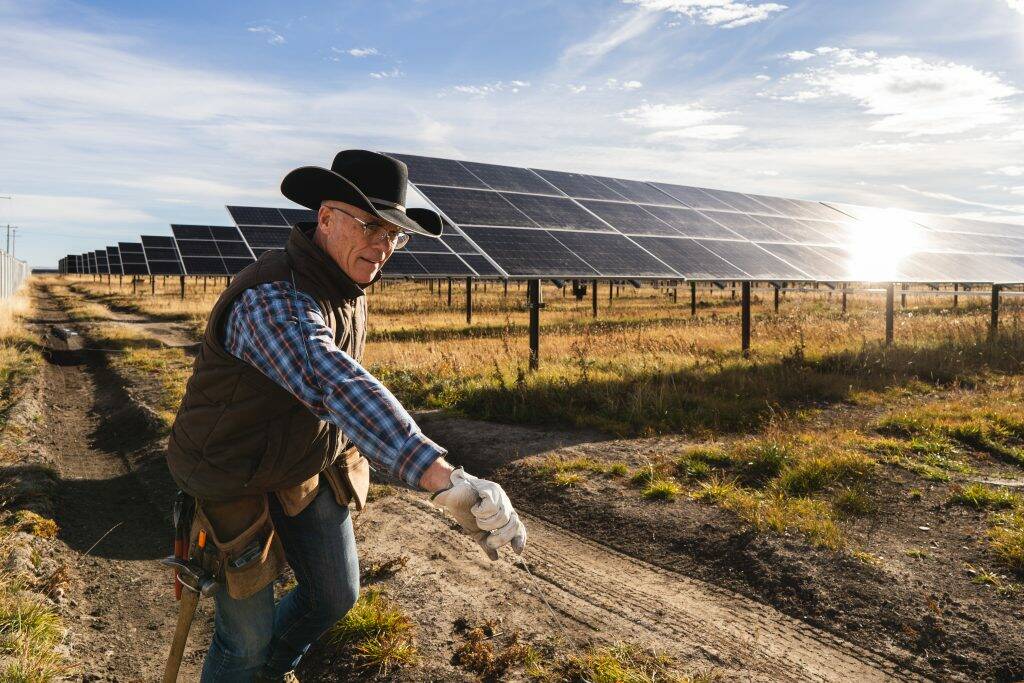I’ve lived in small towns where people don’t lock their front doors and they leave their car keys in the ignition — overnight.
I’ve visited dozens of farms where hundreds of thousands of dollars of equipment is sitting around, easy to steal.
I’ve almost never been to a western Canadian farm that has its farmyard’s access controlled by a gate or any obstacle. You can just drive in and walk up to the family home or into its business, as if you must be a law-abiding person. This is often kilometres from the nearest neighbour with nobody to hear a scream.
Read Also

Support needed at all levels for high-value solar projects
Farmers, rural municipalities and governments should welcome any opportunity to get involved in large-scale solar power installations, say agrivoltaics proponents.
I wonder if that will change. In the wake of the uproar over the Gerald Stanley verdict in Saskatchewan, can farmers afford to expose themselves to situations that could be imposed on them and go bad?
Living openly and honestly seems to me a crucial element of farm and rural culture. The people aren’t naive about crime and their own isolation and exposure to the nasty acts that their fellow human beings can perpetrate. Farmers can be some of the wariest and most cautious people you ever meet.
However, there’s an intentional innocence embraced in many parts of rural society that refuses to live in the sort of fear, anxiety and defensiveness that typifies many parts of urban society. They don’t want to act like they live in a city.
In one small prairie town in which I lived, most people left their keys in their cars’ ignitions overnight. It wasn’t uncommon for a car to disappear, which the RCMP or somebody else would generally find within a day, abandoned after somebody took it as a quick way to get home from the bar. Some people thought it was crazy when I suggested people begin removing the keys and locking the doors.
“What if my wife needs the car and I have the keys?” one friend commented.
I’ve driven into dozens and dozens of farmyards and almost never been stopped by anything. I’ve been in the centre of the farm’s life within seconds. This is normal.
That definitely wasn’t the case at a few farms I visited and saw in 2003. These farms not only had locked gates at their entrances, but some had guards — guards who stayed overnight while some of the farmers drove to the nearby town where they lived with their families. Here there was such a threat of not only theft but also armed raids for valuable inputs that many farmers felt it was too risky to live on the farm.
This wasn’t Western Canada. It was the frontier region of Mato Grosso in Brazil, and the generally petty theft problems up here aren’t likely to inspire a similar flight from the countryside.
However, can the culture of assumed innocence survive too many more situations like that faced by the Stanley family before some farmers start trying to avoid confrontations with thieves as much as they can by putting up gates and barriers, somehow making the farm something much more difficult to access?
Farmers and rural people I speak with seem to hate this idea. I’ve bounced it off a few in the past couple of years, and very few say they would be willing to block access to their yards, for all sorts of practical reasons.
It obviously wouldn’t deter serious criminals, many note. And if the farm is set up for multiple family members, hired hands, truck drivers, friends and neighbours to be able to visit when they need, a locked gate is obviously a problem.
However, I get the strong sense there’s something cultural behind the resistance to upping security on the farm, something that would make it seem somehow silly or cowardly to do.
However, many farmers have also noted the public hostility directed toward farmers during and after the Stanley trial, and that could begin to undermine farmers’ traditional desire to have their farms be an open, welcoming place.
I’d hate to see it happen. It’d make my life harder. But in some areas, maybe being so open and friendly with the world is just one degree of innocence too much.















